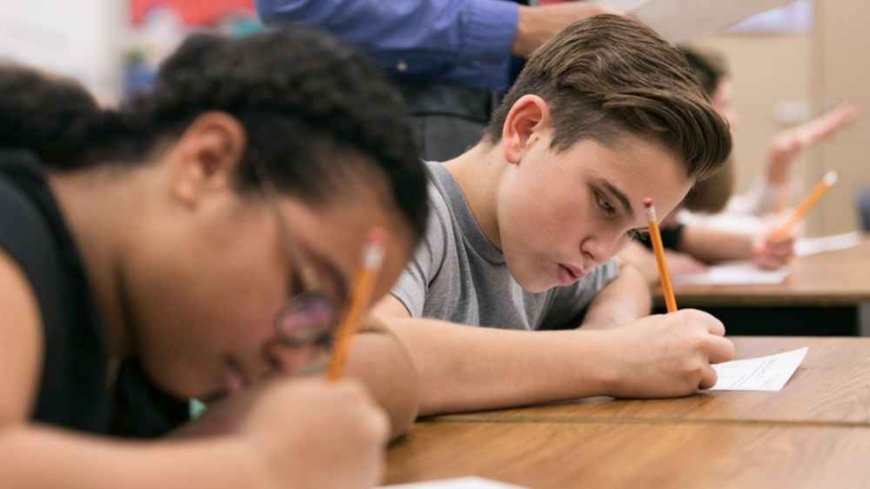Addressing Assessment and Accountability in a Changing Landscape
Assessment and accountability form the bedrock of education, providing insights into student progress and the effectiveness of educational

Assessment and accountability form the bedrock of education, providing insights into student progress and the effectiveness of educational systems. While standardized testing has been a longstanding practice, concerns about its limitations have given rise to a quest for alternative assessment methods. In this article, we delve into the evolving landscape of assessment and accountability in education. We address the concerns surrounding standardized testing and explore advancements in assessment methods, shedding light on alternative approaches that measure student progress holistically.
The Purpose and Perils of Standardized Testing
Standardized testing has been a primary tool used by educational institutions and policymakers to measure student achievement and evaluate school performance. These tests aim to provide a uniform assessment of students' knowledge and skills, allowing for comparison at regional, national, and international levels. However, critics argue that standardized testing has several inherent limitations.
One major concern is the focus on rote memorization and test preparation, which may not accurately reflect students' true understanding of concepts. Additionally, standardized tests tend to measure a narrow set of skills, leaving out important aspects such as critical thinking, creativity, and problem-solving abilities.
Moreover, the emphasis on high-stakes testing can lead to undue stress and anxiety among students, potentially compromising their well-being and affecting their performance. The pressure to perform well on these tests may also encourage a teaching-to-the-test approach, limiting the scope of comprehensive learning experiences.
Advancements in Assessment Methods
In response to the limitations of standardized testing, educators and researchers have explored innovative assessment methods that provide a more holistic view of student progress and capabilities. These advancements seek to capture a broader range of skills, knowledge, and aptitudes while nurturing critical thinking and creativity.
Performance-Based Assessments: Performance-based assessments move away from the traditional multiple-choice format and focus on real-world applications of knowledge. Projects, presentations, and portfolios allow students to demonstrate their understanding in practical contexts, fostering deeper learning and creativity.
Formative Assessments: Formative assessments provide ongoing feedback during the learning process, helping teachers identify areas where students may need additional support. By providing timely feedback, formative assessments empower students to track their progress and make improvements in real-time.
Authentic Assessments: Authentic assessments mirror real-life scenarios and challenges, encouraging students to apply their knowledge and skills in relevant contexts. These assessments align closely with the skills required in the workforce, preparing students for success beyond the classroom.
Embracing Alternative Ways to Measure Student Progress
The shift towards alternative assessment methods is gaining momentum as educators recognize the importance of nurturing well-rounded learners. Integrating various assessment approaches can lead to a more comprehensive understanding of student progress and aptitudes.
Project-Based Learning (PBL): Project-based learning engages students in hands-on, collaborative projects that address real-world issues. Through PBL, students develop critical thinking, problem-solving, and communication skills while demonstrating their knowledge in practical ways.
Competency-Based Education (CBE): Competency-based education focuses on students' mastery of specific skills and knowledge rather than seat time. As students progress at their own pace, they build a deeper understanding of concepts and achieve higher levels of proficiency.
Peer and Self-Assessment: Involving students in the assessment process through peer and self-assessment empowers them to take ownership of their learning journey. This practice fosters metacognitive skills and encourages students to reflect on their growth and areas for improvement.
Evaluating the Effectiveness of Educational Systems
Assessment and accountability go hand in hand, as evaluating educational systems is essential to drive continuous improvement. However, the focus should not be solely on test scores but rather on a comprehensive evaluation that considers multiple aspects of the learning experience.
Qualitative Feedback: Gathering qualitative feedback from students, teachers, and parents can provide valuable insights into the strengths and weaknesses of educational systems. Open-ended surveys, focus groups, and interviews can offer a nuanced understanding of the learning environment and its impact on student outcomes.
Longitudinal Studies: Longitudinal studies track students' progress over an extended period, offering a deeper understanding of their academic and personal development. These studies can identify patterns, trends, and factors that contribute to successful educational outcomes.
Balancing Accountability and Growth
Accountability remains crucial in education, ensuring that schools and educators are responsible for providing quality learning experiences. However, a balance must be struck to avoid overemphasizing standardized test scores and fostering a narrow approach to education.
By combining diverse assessment methods, educational institutions can create a comprehensive picture of student progress and potential. This approach values growth, encourages continuous improvement, and promotes a broader set of skills and competencies that prepare students for an ever-changing world.
As education continues to evolve, assessment and accountability practices must evolve with it. Recognizing the limitations of standardized testing, educators and policymakers are exploring alternative assessment methods that embrace the complexity and diversity of student learning. The pursuit of innovative assessment approaches enables educators to nurture critical thinking, creativity, and practical skills while encouraging students to become active agents of their learning journey.
By striking a balance between accountability and growth, the educational landscape can become more responsive to the needs of students and the demands of the future workforce. Embracing alternative ways to measure student progress empowers learners to become lifelong learners, adaptable problem solvers, and well-rounded contributors to society. As we reimagine education, assessment and accountability take center stage in shaping a brighter and more inclusive future for learners around the globe.
